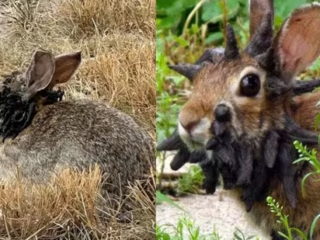Preterm Infant with Multiple Congenital Anomalies Receives Complex Treatment and Overcomes Challenging Odds
Noida, India – A preterm baby with a rare condition called Tracheoesophageal fistula, along with multiple associated congenital anomalies, received life-saving surgery at Fortis Hospital Noida. The delicate procedure successfully corrected the abnormal connection between the food pipe and windpipe and provided a new lease of life for the baby, who defied the odds stacked against them.
A Complex Case with Multiple Co-morbidities
The newborn, born prematurely at 32 weeks with a low birth weight of 1.9 kgs, was diagnosed with Tracheoesophageal fistula, part of a rare condition known as Vacterl Anomaly. The baby also had co-existing anomalies, including a hole in the heart, right horseshoe kidney, neural tube defects, and abnormal genitals. These complications required immediate and specialized medical attention.
Successful Corrective Surgery Despite Challenging Circumstances
Due to respiratory distress, the baby was transferred to the Neonatal ICU at Fortis Hospital Noida and provided with vital oxygen support. However, the baby faced further difficulties as the nasogastric tube intended for feeding became entangled in the upper food pipe (oesophagus). Through extensive investigations, including blood tests, chest X-rays, and echocardiography, the presence of Tracheoesophageal fistula and a right horseshoe kidney was confirmed.
On the second day after birth, the baby underwent a complex and challenging corrective surgery. The surgical team skillfully managed the procedure, considering the baby’s prematurity, low birth weight, and associated congenital anomalies. However, the postoperative period was marked by complications, including pneumonia, necessitating prolonged parenteral nutrition and ventilatory support.
Expert Insight and Collaborative Efforts
Dr. Ashutosh Kumar Sinha, Director and HOD, Pediatrics, Fortis Hospital Noida, emphasized the significance of timely diagnosis and treatment to ensure the survival and well-being of infants with Tracheoesophageal fistula. Dr. Sinha highlighted the importance of a coordinated approach among pediatric surgeons, specialized anesthetists, and neonatology care in managing such complex cases.
Overcoming Challenges with Skilled Expertise
Dr. Dharmendra Singh, Pediatric Surgery, Fortis Hospital Noida, explained that the main challenge in the case was bridging the gap between the two ends of the esophagus after dividing the fistula. The fragility of tissues and the wide gap necessitated complete mobilization of the upper end of the esophagus. The skilled anesthetist team played a crucial role in managing fluctuating oxygen saturation during the surgery. The collaborative efforts of the multidisciplinary team and the hospital’s infrastructure contributed to the successful outcome.
Triumphing Against All Odds
Despite the critical condition and multiple comorbidities, the infant’s chances of survival appeared bleak. However, through the expertise and dedication of the medical team at Fortis Hospital Noida, led by Dr. Dharmendra Singh and Dr. Ashutosh Kumar Sinha, the baby triumphed over adversity and was discharged after 12 days of intense treatment and care.








